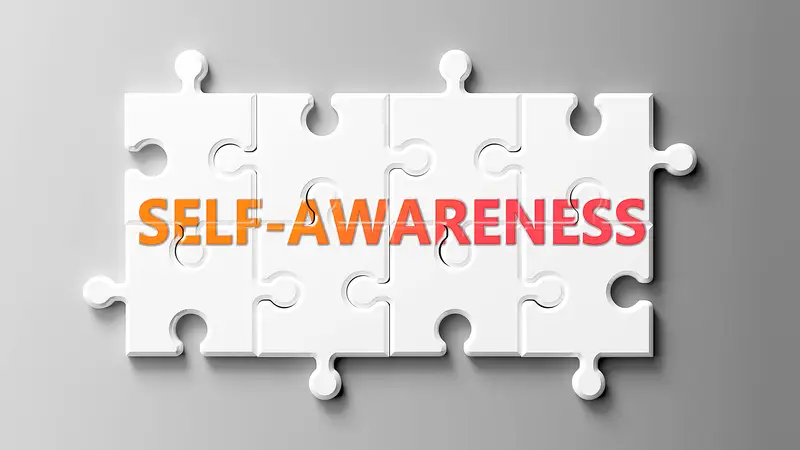There is a pivotal aspect of great leadership that is seldom discussed. It’s the “secret sauce” in the recipe for influential leadership. It sounds simple, but it can be a barrier to overcome because it requires humility and vulnerability. Self-awareness involves a deep understanding of one’s own emotions, strengths, weaknesses, values, and impact on others. But how does one allow such a deep internal inspection without fear of what might be revealed? If only dentists would embrace the potential strength gained by allowing this deep assessment of tendencies that rise under the pressure of practice ownership and management. Leaders who possess this secret ingredient of self-awareness are better equipped to navigate the complexities of leading others, fostering a positive work environment, and driving organizational success.
Understanding Self-Awareness
Self-awareness can be divided into two broad categories: internal self-awareness and external self-awareness. Internal self-awareness is about understanding oneself—knowing one’s strengths, weaknesses, values, passions, and how one responds to different situations. External self-awareness, on the other hand, involves understanding how others perceive you. This includes being aware of how your behavior, communication style, and decisions impact others. This can be unnerving at first, but allowing this vulnerability can have significant positive repercussions.
The Importance of Self-Awareness in Leadership
- Improved Decision-Making: Self-aware leaders are better decision-makers. Being more decisive fosters respect from the team and creates efficiency within the practice.
- Emotional Intelligence: Self-awareness is a key component of emotional intelligence, which is essential for effective leadership. Leaders with high emotional intelligence can manage their own emotions and understand and influence the emotions of others. This leads to better relationships, improved team morale, and higher productivity.
- Authenticity and Integrity: Self-aware leaders are authentic and act with integrity. They are true to their values and principles, which builds trust and respect among their team members. This authenticity fosters a culture of transparency and openness, encouraging employees to be honest and genuine.
- Personal Growth: Self-awareness fosters personal and professional growth. By understanding their strengths and weaknesses, leaders can work on improving their skills and overcoming their limitations. This continuous development is crucial for adapting to changing circumstances and staying effective in a leadership role.
- Better Communication: Self-aware leaders communicate more effectively. They understand the impact of their words and actions on others and can adjust their communication style to suit different situations. This leads to clearer, more impactful communication and reduces misunderstandings and conflicts.
- Enhanced Relationships: Self-awareness improves interpersonal relationships. Leaders who understand their own emotions are better equipped to understand and empathize with their team members. This empathy strengthens team culture, fosters collaboration, and creates a cohesive environment.
Developing Self-Awareness
The decision to embrace self-awareness requires honest reflection on one’s actions, decisions, and their outcomes. This is a powerful tool for developing self-awareness. Leaders can set aside time to reflect on their experiences, identify patterns in their behavior, and consider how they can improve. To do so effectively, one must put down the walls of pride and practice vulnerability.
“Vulnerability sounds like truth and feels like courage. Truth and courage aren’t always comfortable, but they are never weakness.” – Brené Brown
Another way to develop better self-awareness is by seeking feedback from others, allowing oneself to be more open to constructive criticism. Leaders should regularly solicit feedback from their team members, peers, and mentors. This feedback provides valuable insights into how others perceive their behavior and leadership style.
Working with a coach or mentor can significantly enhance self-awareness. Coaches and mentors provide objective perspectives, ask probing questions, and offer guidance on personal and professional development. They also create an atmosphere of accountability and encouragement.
There are several tools like the Myers-Briggs Type Indicator (MBTI), the DISC assessment, and the Emotional Intelligence Quotient (EQ) which can provide valuable insights into one’s personality traits, communication style, and emotional intelligence. These assessments can help leaders understand themselves better and identify areas for improvement.
In today’s dental practice, leadership goes beyond technical expertise and clinical skills. It’s about fostering a supportive environment where every team member feels valued and empowered. As a dentist, you’re not just treating patients; you’re leading a team, managing a business, and creating a culture that promotes growth and excellence. This multifaceted role requires a high level of self-awareness. Understanding your own strengths and weaknesses, and how your actions affect others, is essential to inspiring and guiding your team toward success.
Want to learn more about Leadership Skills with Dana?
Hear her speak at the Amazing Practice Retreat – Tuscany:
April 30 – May 4, 2025:
Ingredients for Success: Blending Leadership and Systems for Practice Success



